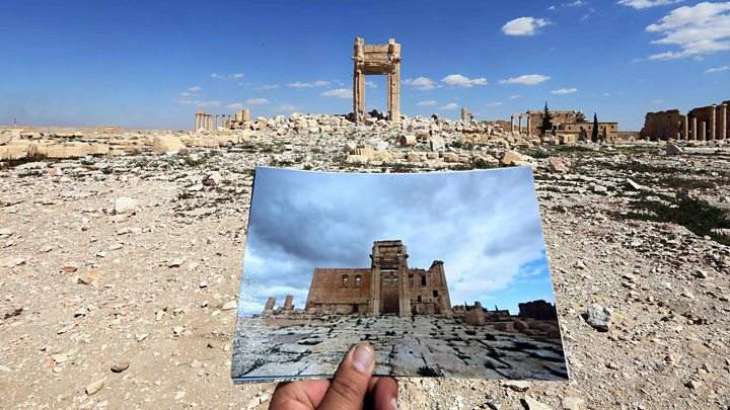Over 100 groups on Facebook are involved in the trade of looted antiquities from the Middle East, but shutting them down would mean losing track of previously undocumented artifacts, Amr al-Azm, a co-director of the Antiquities Trafficking and Heritage Anthropology Research (ATHAR) Project, told Sputnik in an interview
GENOA (Pakistan Point News / Sputnik - 28th November, 2019) Over 100 groups on Facebook are involved in the trade of looted antiquities from the middle East, but shutting them down would mean losing track of previously undocumented artifacts, Amr al-Azm, a co-director of the Antiquities Trafficking and Heritage Anthropology Research (ATHAR) Project, told Sputnik in an interview.
"Now it's over 100 groups on Facebook that are involved in it and are active. The number is growing, it's not shrinking," al-Azm, a founding member of the Alliance to Counter Crime Online, said, adding that social media has helped traffickers extend their reach in short periods of time.
The ATHAR cooperated with people on the ground who could witness and document looting. The research team could then compare the information they had received with sale offers on Facebook. Most ads were for jewelry, coins and mosaics, some of which are worth up to $80,000 Dollars.
The teams on the ground worked on verifying and locating the users who created the sale posts on Facebook, which in turn helped al-Azm and his colleagues build their profiles.
A final report summarizing the project's work was published in June 2019. At the time, it had found that 95 Arabic Facebook groups were using the platform for antiquities trafficking, and that individuals associated with terrorist organizations in Syria were among their members.
"When we published our report, Facebook was asked if they were going to do anything about it, and the answer was: if you have any information, give it to us. But we have an issue on that. For Facebook to come and delete this information, it would be destroying not only records that one day could be used to prosecute looters, criminals, traffickers etc., so they will be destroying evidence that can be used in the court," al-Azm said.
The historian pointed out that these objects did not come from museums, making these posts on Facebook the only documentation available for the artifacts in question. It is for this reason that al-Azm emphasized the importance of cooperation on Facebook's part so that this data could be preserved and the appropriate action taken against traffickers.�
"This is coming straight from the ground, so the only picture, the only evidence proving that this object ever existed in our human history is the image that somebody posted on Facebook. If you are going to delete that, then it will be lost, the record will be gone. So for us, it is imperative that Facebook preserve this data and take all the necessary steps to download it and save it for future needs, and then begin to cooperate with law enforcement agencies and with groups like ourselves who are involved. We have a lot of experience to help them begin to disrupt use of platform for this kind of activities," he continued.
The researcher noted that starting this fall, he had been seeing Facebook grow increasingly aware of the problem. In particular, the social media platform has hired a team of regional experts on Syria who are now looking into the situation, he added.




